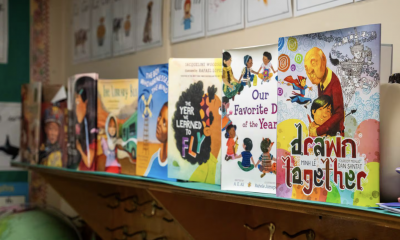Local
Remembering trans victims
Annual events include candlelight vigil
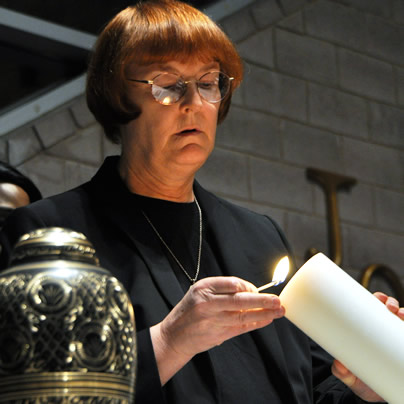
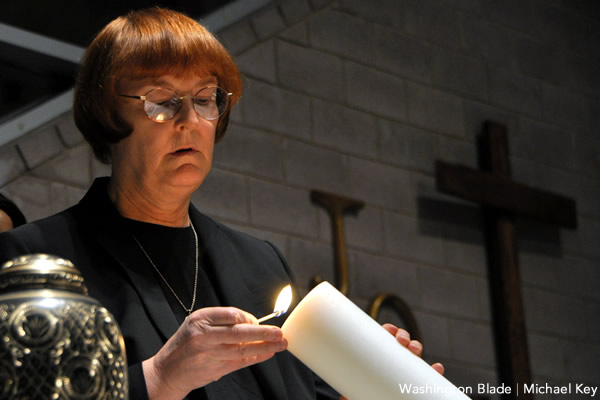
Cities across the U.S. remember transgender crime victims each November. (Washington Blade photo by Michael Key)
Organized by First Unitarian Church of Baltimore and the Transgender Response Team, the 15th annual International Transgender Day of Remembrance will be observed on Nov. 20 between 6:30-8:30 p.m. at the Sanctuary of the First Unitarian Church of Baltimore, 12 W. Franklin St., Baltimore. This memorial event includes an Interfaith Memorial Service; the reading of the names and a candle lighting ceremony.
The Transgender Day of Remembrance was created to memorialize those who were killed due to anti-transgender hatred or prejudice. The event is held in November to honor Rita Hester, whose murder on Nov. 28, 1998 kicked off the “Remembering Our Dead” web project and a San Francisco candlelight vigil in 1999. Rita Hester’s murder — like many other anti-transgender murder cases — has yet to be solved.
Although not all those represented during the Day of Remembrance self-identified as transgender, each was a victim of violence based on bias against transgender people.
“I pray for the day that we add no more names to the list or candles to light in honor of our trans* brothers and sisters,” said Donna Plamondon, a member of the Trans* Response Team and a candle lighter for this year’s event.
“Transgender Day of Remembrance is extremely important,” said Baltimore Mayor Stephanie Rawlings-Blake. “It gives transgender individuals and LGBT community advocates an opportunity to raise public awareness about this special group of people, bring attention to crimes against them and honor the memories of those whose lives ended due to issues relating to their sexual identity or expression. Transgender people deserve love and respect. Therefore, each year on Nov. 20, I take time to think about and honor the victims of violence rooted in hate.”
The Mayor is hosting a press conference and proclamation reading earlier that day at 11:30 a.m. at City Hall in the Rotunda, 100 N. Holliday Street, Baltimore. The public is welcome to attend.
A Transgender Day of Community will take place on Saturday, Nov. 23, from 11:30 a.m. to 6 p.m. at the Enoch Pratt Parish Hall, 514 N. Charles St., Baltimore.
Virginia
Miyares joins efforts to fight Title IX changes
Republican Va. AG part of multi-state effort
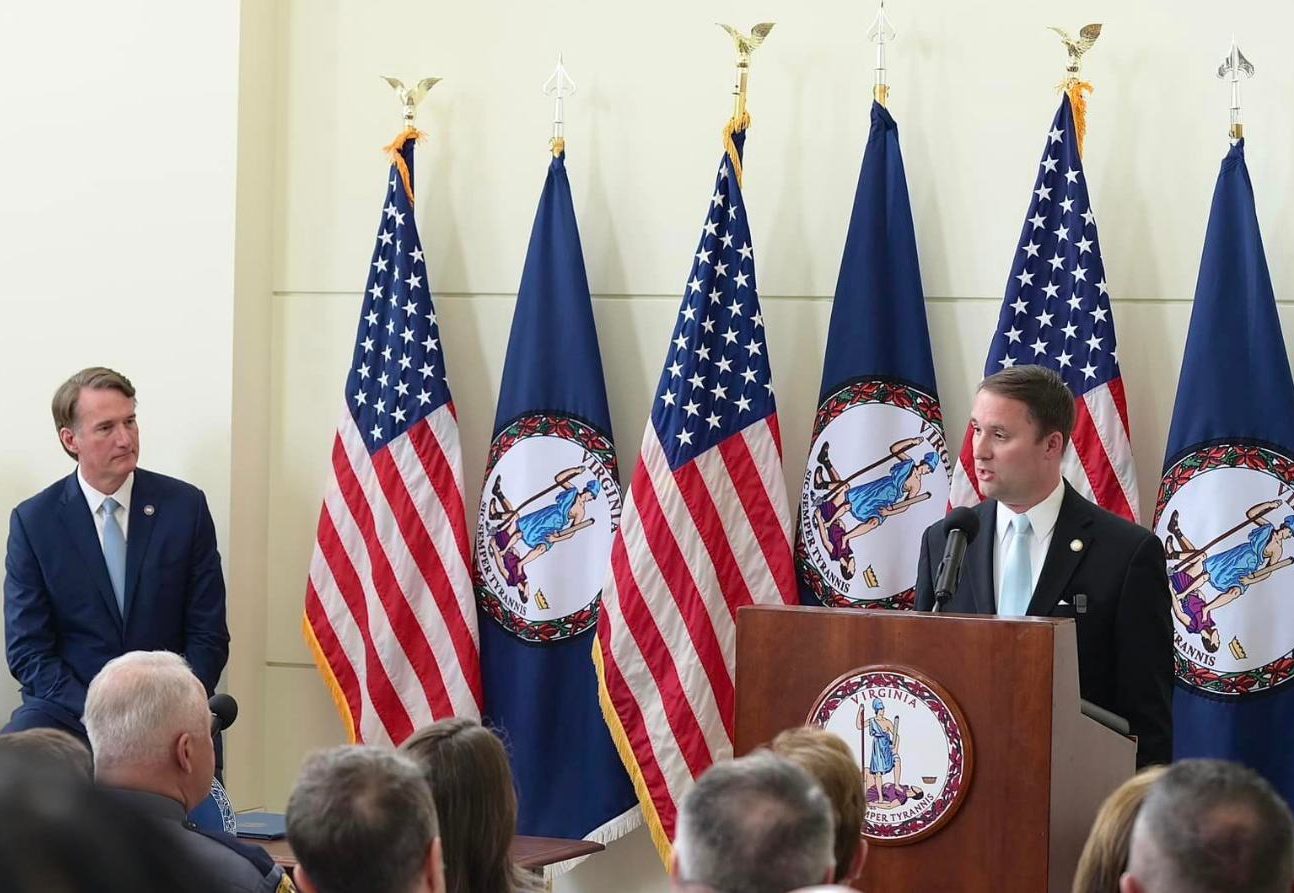
BY NATHANIEL CLINE | Virginia Attorney General Jason Miyares has joined a multi-state effort to stop new Title IX rules from going into effect.
The list of new rules designed to protect victims of campus sexual assaults and the rights of LGBTQ students has come under attack by Republican attorneys general in several states.
Miyares called the changes a “dangerous overhaul” of Title IX, and said the new rules would negatively impact students, families and schools in the commonwealth. The ruling also comes after Gov. Glenn Youngkin’s administration overhauled the commonwealth’s transgender student policies.
“The Biden administration’s unlawful rule would jeopardize half a century of landmark protections for women, forcing the administration’s social agenda onto the states by holding federal funding hostage,” Miyares said in a statement. “They are avoiding Congress and the constitutional process because they know it will not pass. We cannot roll back Title IX in the name of false equity.”

Attorney generals from Tennessee, Indiana, Kentucky, Ohio, and West Virginia have also signed onto the suit, which was filed in Tennessee. Separate lawsuits have been filed in other states, including Louisiana and Texas.
Title IX, which has undergone several transformations based on the political party in office, was created to address women’s rights and prohibits any federally funded school or education program from discriminating against any student based on sex since it was established in 1972.
The Department of Education said some differences compared to the previous version developed under the Trump administration, include protections against all sex-based harassment and discrimination, prohibits schools from sharing personal information, and supports students and families.
Narissa Rahaman, executive director for Equality Virginia, said in a statement that the rule prevents opponents from weakening “crucial” civil rights protections including for LGBTQ students by ensuring that pregnant and parenting students have a right to equal education opportunities, protecting student survivors and guaranteeing the rights of LGBTQ students to come to school as themselves without fear of harassment or discrimination.
“Students across races, places, and genders prove every day that they can do great things, especially when there are strong Title IX protections in place, which is why the Biden administration’s updates to the Title IX rules are essential to ensure every student can thrive at school,” said Rahaman.
The new rule is slated to take effect on Aug. 1 and will apply to complaints of alleged conduct that occurs on or after that date, according to the Department of Education.
Protections
While the ruling protects students and employees from all sex-based harassment and discrimination, it will also impact LGBTQ students and employees, including providing complete protection from sex-based harassment, and prohibiting schools from sharing personal information.
Schools must act “promptly and effectively” to protect and treat all students and staff who make complaints “equitably.” Schools must also provide support measures to complainants and respondents, and act to end any sex discrimination in their programs and prevent any recurrence.
The rule further clarifies the definition of “sex-based harassment,” which means to treat someone unfairly because of their gender; and the scope of sex discrimination, including schools’ obligations not to discriminate based on sex stereotypes, sex characteristics, pregnancy or related conditions, sexual orientation, and gender identity.
The federal agency said the changes will empower and support students and families by requiring schools to disclose their nondiscrimination policies and procedures to all students, employees, and other participants in their education programs so that students and families understand their rights.
The final rule also protects against retaliation for students, employees, and others who exercise their Title IX rights, and supports the rights of parents and guardians to act on behalf of their elementary school and secondary school children.
The rule also protects student privacy by prohibiting schools from disclosing personally identifiable information with limited exceptions, which is something the Youngkin administration has opposed.
Advocates say one of the rights students should have is the power to decide who finds out about their transgender status, to protect them from being bullied or harassed.
Virginia policies
In 2021, the first model policies for trans students were designed under former Gov. Ralph Northam to provide school officials guidance on the treatment of trans and nonbinary students and to protect the privacy and rights of these students.
However, some schools declined to adopt the model policies, and the state law that led to them lacked enforcement incentives or penalties.
The current policies adopted by the Youngkin administration were revised to require parental approval for any changes to students’ “names, nicknames, and/or pronouns,” direct schools to keep parents “informed about their children’s well-being” and require that student participation in activities and athletics and use of bathrooms be based on sex, “except to the extent that federal law otherwise requires.”
Virginia schools have also not fully adopted the newly revised policies, and state law has not changed since the policies were overhauled in 2023.
The Virginia Department of Education faces two lawsuits over the policies adopted by the Youngkin administration.
“All Virginia students, including our transgender and nonbinary students deserve to feel safe and welcomed at schools,” said Wyatt Rolla, a senior trans rights attorney with the ACLU of Virginia. “Accessing restrooms, locker rooms and other facilities that are necessary when you are at school learning is a key part of our schools being inclusive of those transgender [and] non binary students that are part of our community.”
Athletics not included
The provisions under the new Title IX rule did not mention anything about requiring schools to allow trans students to play on teams that align with their gender identity. Virginia has taken its own shot at banning trans athletes from competing in sports through legislation.
In February, the Youngkin administration attempted to challenge the Virginia High School League’s policy on transgender athletes, the Daily Progress reported.
The proposed policy would have matched with the administration’s current policies that students should be placed on teams based on their biological sex rather than their gender identity.
The Virginia High School League, which oversees interscholastic athletic competition for Virginia’s public high schools, allows for trans athletes to participate on teams that match their gender identity, but under certain conditions.
Simultaneously, lawmakers in the Virginia General Assembly controlled by Democrats killed bills, including Senate Bill 68, during the previous session that would have essentially banned transgender students from competing in sports.
State Sen. Tammy Brankley Mulchi (R-Mecklenburg), who carried Senate Bill 723, said students like her 6-year-old granddaughter should have a choice to play with their own gender during a Feb. 1 Senate Education subcommittee hearing.
Mulchi’s bill would have required schools and colleges to have separate sports for boys and girls based on their biological sex. Any dispute would require a note from a doctor.
“If she [my granddaughter] wants to play an all-girl sport, I want her to play against girls that were born girls and not play against someone that is much stronger than her or can hurt her and take away her chances of a scholarship,” Mulchi said.
However, state Sen. Stella Pekarsky (D-Fairfax) argued during the February hearing that whether students are competing with their respective biological sex or not “children of all ages, sexes have different builds and strengths and no children are alike on the same team.”
******************************************************************************************

Nathaniel is an award-winning journalist who’s been covering news across the country since 2007, including politics at the Loudoun Times-Mirror and the Northern Neck News in Virginia as well as sports for the Plain Dealer in Cleveland, Ohio. He has also hosted podcasts, worked as a television analyst for Spectrum Sports, and appeared as a panelist for conferences and educational programs. A graduate of Bowie State University, Nathaniel grew up in Hawaii and the United Kingdom as a military brat.
******************************************************************************************
The preceding article was previously published by the Virginia Mercury and is republished with permission.
Nonprofit. Nonpartisan. No paywalls. Fair and tough reporting on the policy and politics that affect all of us is more important than ever. The Mercury brings you coverage of the commonwealth’s biggest issues from a team of veteran Virginia journalists.
We’re part of States Newsroom, the nation’s largest state-focused nonprofit news organization.
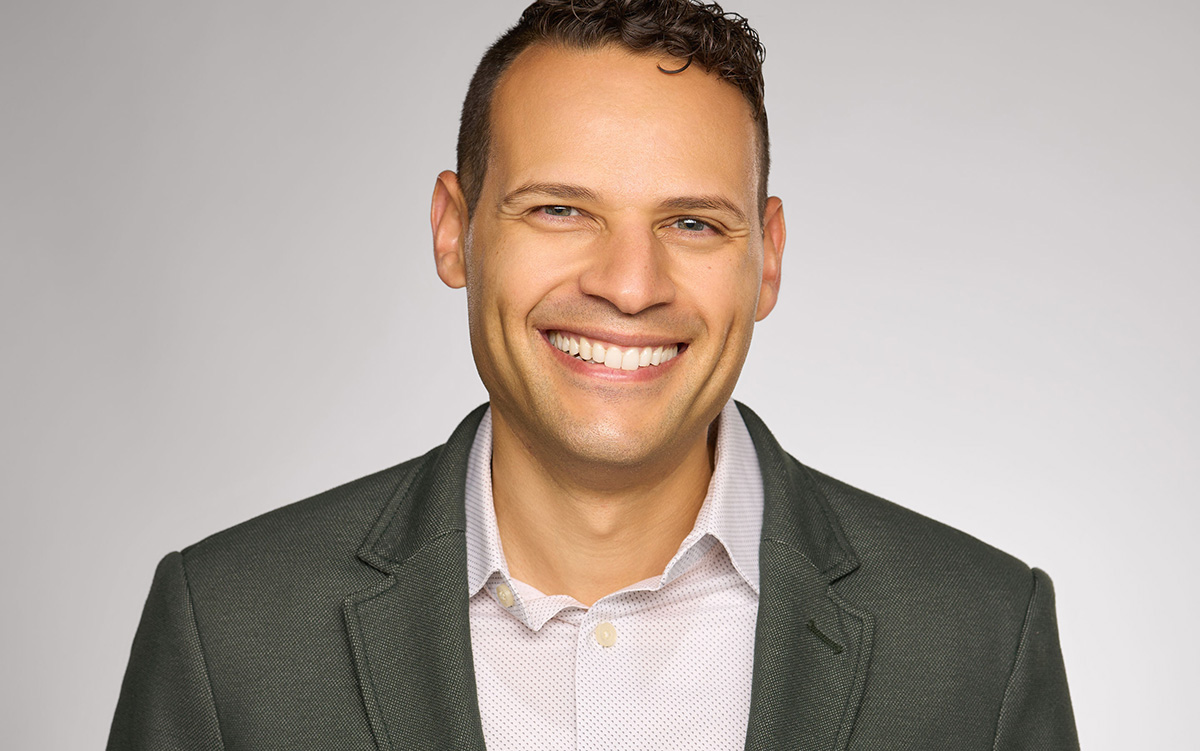
The Comings & Goings column is about sharing the professional successes of our community. We want to recognize those landing new jobs, new clients for their business, joining boards of organizations and other achievements. Please share your successes with us at: [email protected].
The Comings & Goings column also invites LGBTQ+ college students to share their successes with us. If you have been elected to a student government position, gotten an exciting internship, or are graduating and beginning your career with a great job, let us know so we can share your success.
Congratulations to Manny Cosme, owner of CFO Services Group, who was named Small Business Owner of the Year, for Washington, D.C., by the Small Business Administration.
SBA Administrator Isabel Castillas Guzman said, “Our 2024 National Small Business Week award winners exemplify excellence, innovation, and commitment, and the SBA is proud to showcase their incredible achievements and impact on their communities and our economy.” Upon being notified of the award Manny said, “I am incredibly honored and humbled to receive the Small Business Owner of the Year award from the Small Business Administration. This recognition serves as a testament to my team’s hard work, dedication, innovation, and impact in our local community. As a small business owner, I have always strived to embody excellence in my company’s services and commitment to my clients. My team and I are proud to represent the thriving small business communities across the country, and we remain committed to driving innovation, growth, and positive change in our industry.”
Cosme is the founder and current president and CEO of CFO Services Group. The firm is focused on providing bookkeeping, outsourced accounting departments, and fractional CFO advisory services, to growing small businesses and non-profit organizations. The company is headquartered in D.C., with team members and clientele throughout the United States. In addition to working with private business and non-profit clients, CFO Services Group partners with various economic development agencies, such as local governments, chambers of commerce organizations, CDFIs and SBDC centers, to provide free financial literacy and technical assistance to businesses in underserved communities.
Manny has served as the Vice President of Finance & Administration for the United States Hispanic Chamber of Commerce. He recently served as the Finance Chair for the Greater Washington Hispanic Chamber of Commerce, and Vice President of the Equality Chamber of Commerce. He is often sought after in keynote discussions on entrepreneurism and finance for fellow business owners.
Maryland
What Anne Arundel County school board candidates think about book bans
State lawmakers passed Freedom to Read Act in April
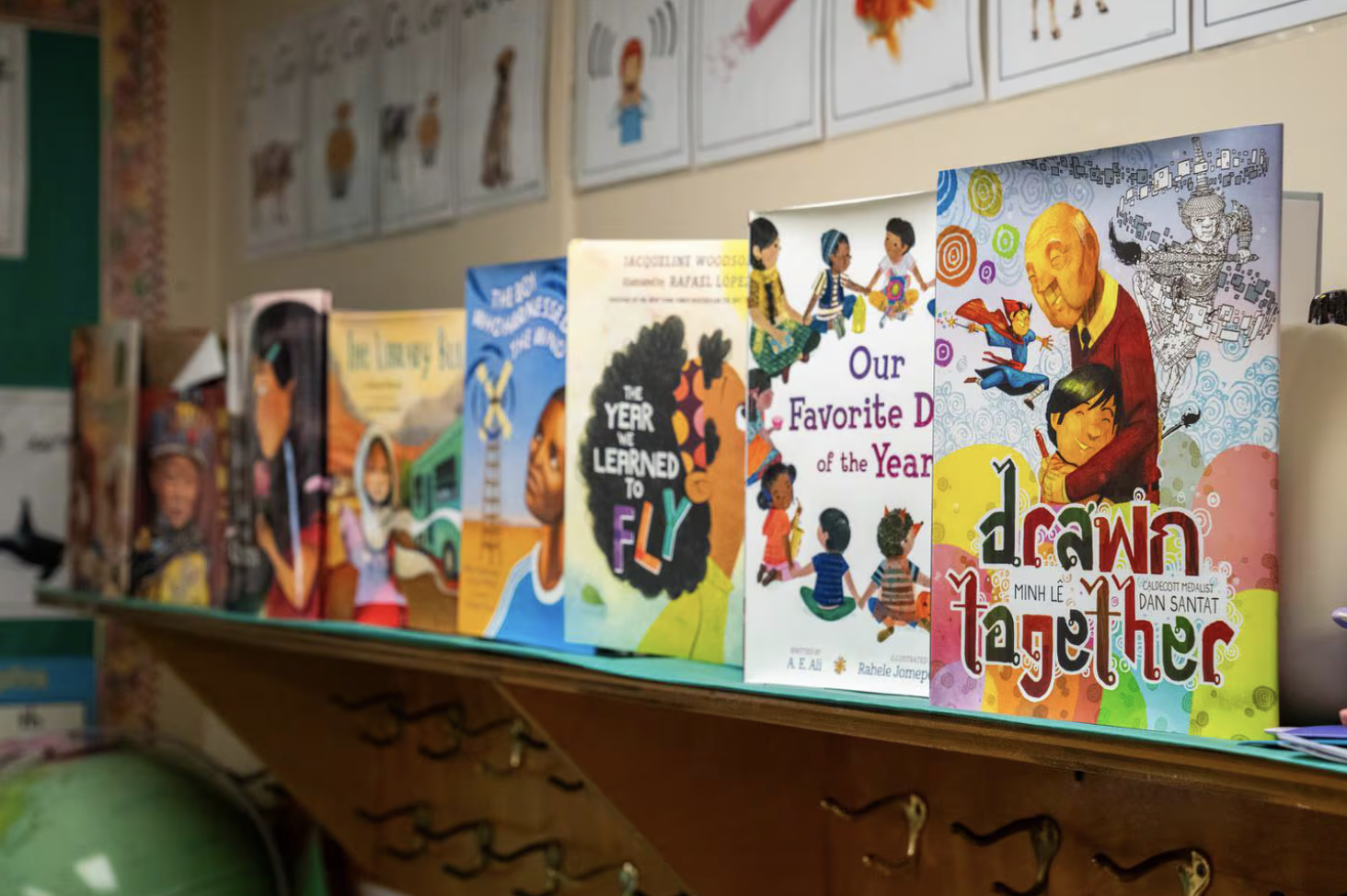
BY ROYALE BONDS | Parents’ efforts to restrict content available to students in school libraries has become a contentious issue in Maryland. Conservative parent groups, such as Moms for Liberty, have been working to get books they believe are inappropriate removed from libraries in Carroll and Howard counties, sparking protests, new policies, and even a state law.
The Freedom to Read Act, passed in April, sets standards that books cannot be removed from public and school libraries due to an author’s background. Library staff that uphold the standard are protected under this act. The law, however, does not prohibit removing books deemed “sexually explicit,” the stated reason local Moms for Liberty chapters challenged school library books.
The rest of this article can be read on the Baltimore Banner website.
-

 a&e features4 days ago
a&e features4 days agoPride season has begun
-

 Federal Government4 days ago
Federal Government4 days ago4th Circuit rules gender identity is a protected characteristic
-

 The White House1 day ago
The White House1 day agoJudy Shepard to receive Presidential Medal of Freedom
-
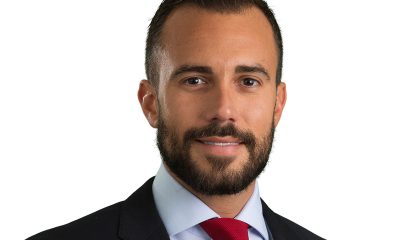
 World4 days ago
World4 days agoNew World Bank US executive director: LGBTQ rights are human rights





